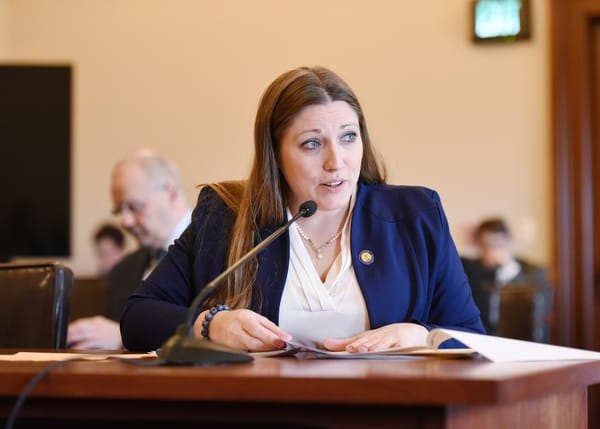Nathan Leamer: Future of Regulatory Regime in Balance
Regardless of which party wins in November, the Loper Bright legal change will have lasting effects.
Nathan Leamer

All political eyes will be on the election for the next few days. It will be a mass sprint for every candidate on the ballot, with the future of the presidency and Congress in the balance.
It’s worth looking at the judicial side; specifically, how a recent Supreme Court decision has a significant effect on the Federal Communications Commission and what independent agencies focus on going forward.
For years, federal agencies followed Chevron deference, a principle of judicial review where federal courts would defer to an agency's reasonable interpretation when a federal statute is ambiguous or leaves an administrative gap.
The doctrine was established by the Supreme Court in 1984 in the case Chevron v. Natural Resources Defense Council. The purpose of the doctrine was to respect the expertise and policy choices of executive agencies and the separation of powers between the branches of government.
Under this principle, the FCC could move boldly forward on far-reaching decisions, such as the recently enacted Digital Discrimination Order that arguably went beyond their remit, dramatically affecting small businesses and consumers.
While intended to improve internet access for those on the wrong side of the digital divide, the item created, in the words of Commissioner Brendan Carr, “a framework that gives the FCC a nearly limitless power to veto private sector decisions,” and, for the first time, gives “the federal government a roving mandate to micromanage nearly every aspect of how the internet functions.”
The Digital Discrimination Order is an example of overreach
One example of this overreach is how the Digital Discrimination Order’s expansive definition of “covered entities” encompasses not only broadband providers but also contractors hired by broadband providers and entities responsible for maintaining and enhancing network infrastructure. For this reason, NATE: The Communications Infrastructure Contractors Association joined a lawsuit in the Court of Appeals for the 8th Circuit against the FCC to overturn this order.
Efforts to undo this onerous regulatory regime have gained traction due to the Supreme Court. In last summer’s Loper Bright Enterprises v. Raimondo decision, the Supreme Court ruled that courts must use their judgment to decide if an agency has acted within its statutory authority.
This overturned Chevron Deference, which required courts to defer to agencies’ interpretations of the law. This reasserted the judiciary’s role in resolving statutory ambiguities. Additionally, the ruling emphasized the importance of clear delegation of authority from Congress to agencies, which may lead to more specific statutory language in future legislation.
As Joe Kane, the director of Broadband and Spectrum Policy for the Information Technology and Innovation Foundation, noted, “The Supreme Court’s decision in Loper Bright v. Raimondo makes it even less likely that the FCC’s recent regulatory overreaches on Digital Discrimination and Title II for the Internet will survive judicial review.”
 Broadband BreakfastBroadband Breakfast
Broadband BreakfastBroadband Breakfast
He explains, “Before, courts would defer to agency’s interpretation of an ambiguous statute if that interpretation was merely reasonable. … Now, it is now even more likely that courts will find them unlawful too.”
Due to the current makeup of the Supreme Court, this doctrine will guide how courts approach these thorny regulatory questions for the foreseeable future. Regardless of which party wins in November, this legal change will have lasting effects that could be a great relief to small businesses that have been routinely mired in red tape and regulatory arbitrage. It is a whole new ball game.
It is hoped the recent Loper decision will guide the court’s approach and overturn the FCC’s regrettable Digital Discrimination Order. It leads to better policy outcomes where federal agencies are no longer able to stretch legislative ambiguity to expand their reach.
Nathan Leamer is the CEO of Fixed Gear Strategies. He was an aide to former Federal Communications Chairman Ajit Pai. This Expert Opinion was originally published on Nov. 1, 2024, in the Fountain Hills Times Independent, and is reprinted with permission.
Broadband Breakfast accepts commentary from informed observers of the broadband scene. Please send pieces to commentary@breakfast.media. The views expressed in Expert Opinion pieces do not necessarily reflect the views of Broadband Breakfast and Breakfast Media LLC.










Member discussion